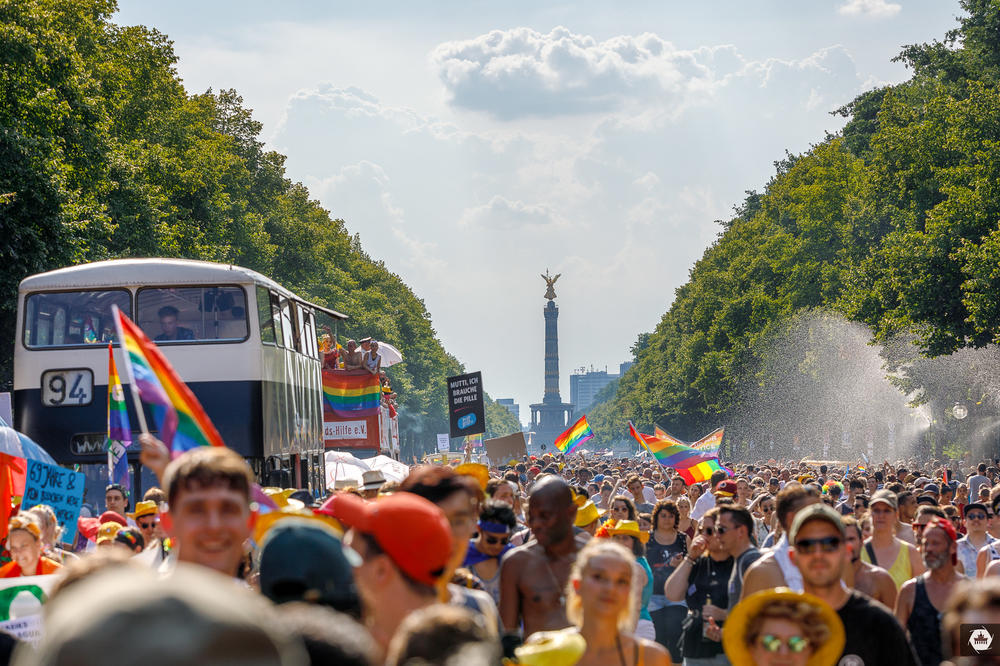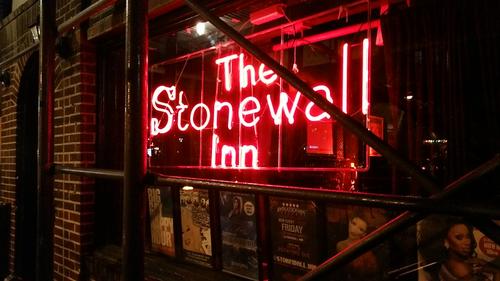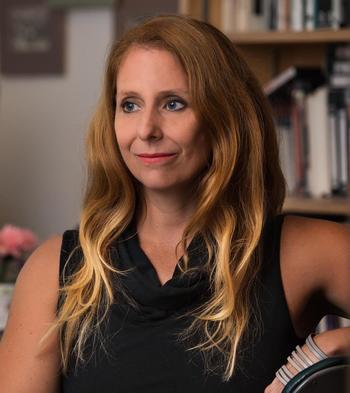The Stonewall Legacy
Canadian professor of history and sexuality Jennifer Evans held an inspiring lecture on queer history at the Friedrich Meinecke Institute
Jul 10, 2023
Every year on Christopher Street Day, people around the world take to the streets to demand better rights for the LGBTQ+ community. These marches commemorate the Stonewall Riots that took place in 1969 on Christopher Street in New York City.
Image Credit: flickr: Vollformat Berlin (CC BY-SA 2.0)
A discriminatory police raid at the Stonewall Inn in New York City on June 28, 1969, led to five nights of riots – a historic moment in the LGBTQ+ movement. Queer history was the subject of this year’s summer semester midterm lecture at Freie Universität Berlin’s Friedrich Meinecke Institute. Professor of history and sexuality Jennifer Evans spoke about how people tell queer history and what parts they tell in her talk “The Queer Art of History: Queer Kinship After Fascism.”
In her lecture, Evans advocated for a queer telling of history that goes beyond conventional narratives. The professor of history at Carleton University in Ottawa, Canada, is a renowned expert in her field. Her research on queer history and solidarity is the subject of widespread discussion in both academia and the arts. She researches the many-layered relationships between queer and trans people and the state and society as a whole. In doing so, she often turns to Germany – and Berlin in particular – to portray the everyday lives of queer communities in all their diversity.
But what can be said about queer experiences and the everyday lives of queer people? And how can we collect meaningful knowledge about them? These questions were at the heart of Evans’ midterm lecture, “The Queer Art of History: Queer Kinship After Fascism,” held at Freie Universität Berlin’s Friedrich Meinecke Institute on June 21, 2023.
“Queer” was previously used as a derogatory term for anyone who did not conform with heteronormative constructs. Once used synonymously with “strange” or “perverse,” the word has now been reclaimed by people it was previously used to insult – with the meaning now largely positively connotated. It has now become an expression of self-determination and pride: a term of defiance whose change in meaning is also part of queer history itself.
However, the academic study of the history of queer and trans people in Germany has been neglected for quite some time, emphasized Evans. This stands in contrast to research carried out in Anglo-American contexts, where considerably more research initiatives exist.
To this day, the Stonewall Inn in Christopher Street, New York City, carries a great deal of meaning for the LGBTQ+ movement.
Image Credit: flickr: NicestGuyEver, (CC BY-NC-ND 2.0)
Nevertheless, some chapters of queer history – turning points, legal breakthroughs, and social protests – are very much present in the collective German memory, albeit incomplete. For example, the Stonewall Riots of 1969 in Christopher Street, New York City. However, this is only one aspect of history, said Evans, recognizing a certain tendency in the Western world to reduce queer history to a simple narrative: that of a fight for freedom. A triumphant journey from suppression and criminalization – for example, during National Socialism – to societal acceptance and legal equality.
However, can this alleged success story for the queer community be used as proof of Germany’s reformation after the Second World War? Such an interpretation fails to take other perspectives into consideration, emphasized Evans. The focus of this tendency is often placed exclusively on gay men, triumphs in the legal system, and protests. It is impossible to reflect the complexity of queer experiences and the everyday lives of queer people in such a narrative. For this reason, Evans advocates an intersectional approach: Those who are affected by multiple forms of discrimination and have different experiences of the developments made in recent years should receive more support and attention. The perspectives of lesbian women, trans people, LGBTQ+ individuals from a migrant background, etc., should be integrated more into our understanding of queerness, both past and present. We should actively consider which forms of identity are valued by the state and society – and which are not. “We must continue to call existing rights and privileges into question,” said Evans. And it is important to place the focus on areas that have received little interest to date. Historians must learn to ask different questions in order to make divergent perspectives more visible. Ambiguity and subjectivity can be useful tools with which to supplement the simple narrative of emancipation.
What does it mean to be queer in Germany? According to Evans, there is no simple answer to this question. She identifies a discrepancy between the urge to belong and the very foundation of queerness, i.e., embracing difference and offering alternatives to heteronormative ways of living. These alternatives must receive more recognition.
Recently, queer and trans people are increasingly becoming the target of right-wing conservative groups – a trend that is making its way into the very heart of society. Many hard-won rights are being called into question once again, meaning that the narrative of a queer success story is misleading at best.
This makes showing solidarity with queer and trans people more important than ever. Fostering more solidarity within the LGBTQ+ community itself is also essential. It is only by doing so that the next chapter of queer history can truly be a triumphant one: a tale of solidarity, community, and kinship.
The original German version of this article appeared in campus.leben, the online magazine published by Freie Universität Berlin.
Jennifer Evans is considered one of the world’s leading queer history specialists.
Image Credit: Luther Caverly



